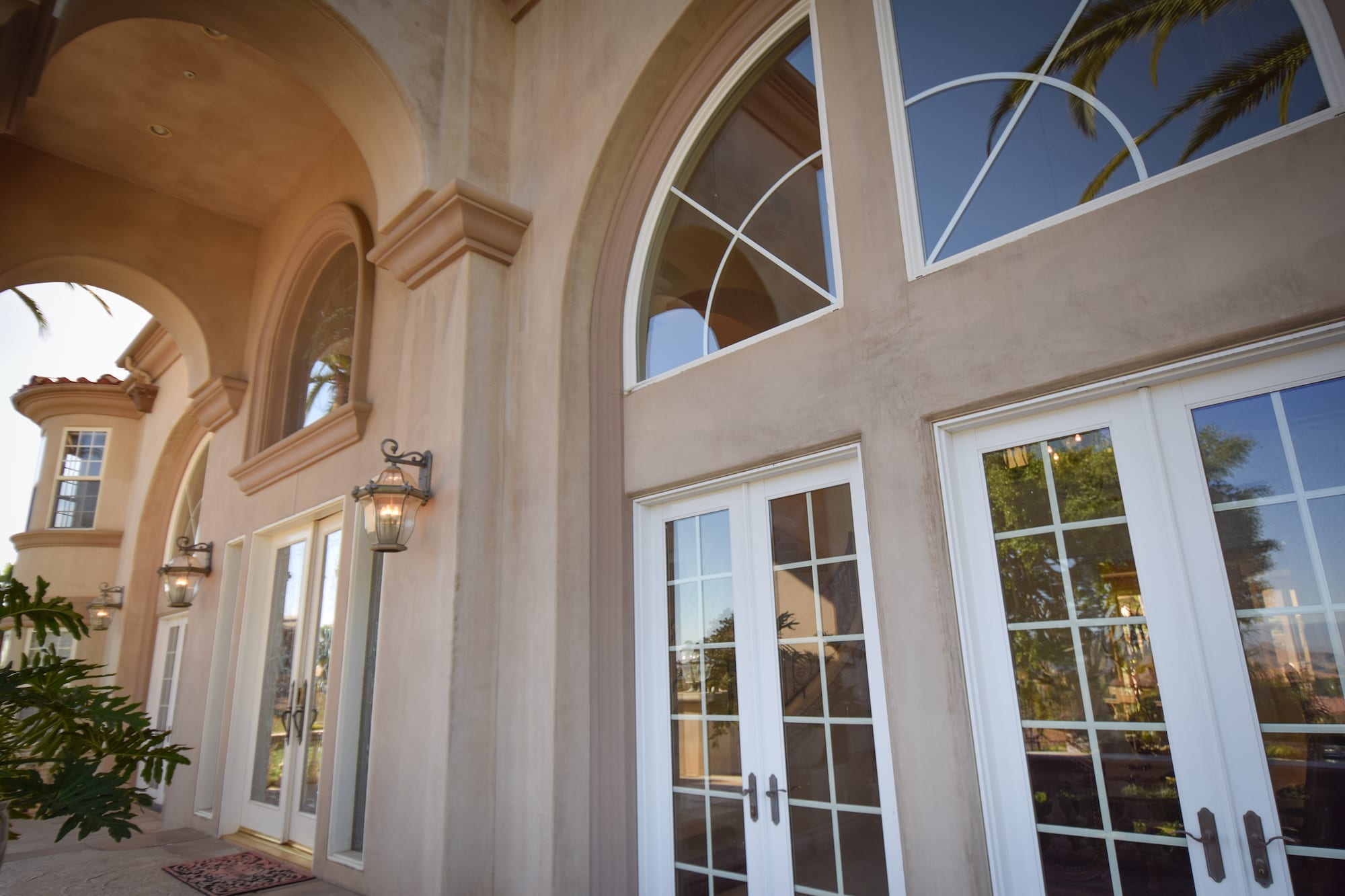Exactly How Residential Window Tinting Improves Your Home's Energy Performance
Residential home window tinting provides a compelling solution for homeowners looking for to boost power effectiveness within their living rooms. By using specialized movies to windows, it successfully reduces heat transfer, thereby supporting indoor temperature levels and decreasing the demand for too much home heating or cooling.
Understanding Window Tinting
Understanding home window tinting is vital for homeowners looking for to enhance both comfort and energy effectiveness in their home. Residential Window Tint. Window tinting involves the application of a thin movie to the interior or outside surface of glass home windows. This film can significantly regulate the quantity of sunlight and warm that enters a home, therefore affecting interior climate problems
There are numerous kinds of window tinting films readily available, each with unique homes. Dyed movies soak up solar energy, while reflective films deflect it away from the glass surface. Ceramic movies supply an equilibrium of presence and warm denial, making them a preferred option among homeowners. The efficiency of window tinting is typically measured by its Visible Light Transmission (VLT) percent, which indicates just how much light can travel through the film.
Benefits of Power Effectiveness
Home window tinting not only enhances visual appeals but likewise plays a significant duty in enhancing energy performance within residential rooms. By decreasing heat transfer with windows, colored films develop a much more secure indoor environment, which can bring about considerable decreases in power usage for heating & cooling. This energy performance translates right into lower utility expenses, offering house owners with substantial long-lasting financial savings.

In addition, window tinting improves the comfort of living rooms. By decreasing glow and blocking dangerous UV rays, tinted windows produce a more positive atmosphere, which can lead to enhanced well-being for residents. The protection against UV rays additionally helps preserve furniture and floor covering from fading, adding to the longevity of family items.
How Tinting Functions
Tinting films run via a mix of innovative materials and technologies developed to regulate the amount of solar power entering a home. Mostly made up of polyester, these movies typically incorporate metallic or ceramic bits that reflect and soak up warm. This twin capacity allows them to substantially reduce the infiltration of ultraviolet (UV) rays and infrared radiation while allowing noticeable light to go through.
The effectiveness of window tinting is measured by its solar warm gain coefficient (SHGC), which indicates just how much solar power is transferred with the home window. Reduced SHGC values are more effective as they check out here signify better heat rejection. In addition, home window colors can include a range of shades, permitting house owners to personalize their visual choices while enhancing power performance.
Additionally, these films act as a barrier, protecting against heat loss throughout colder months by reflecting interior heat back into the space. This thermal insulation impact complements the air conditioning benefits acquired during warmer months, adding to a well balanced interior climate year-round. By taking care of solar power efficiently, residential home window tinting not just boosts convenience however additionally plays an essential role in decreasing energy intake and decreasing energy bills.
Selecting the Right Tint

There are various types of home window movies offered, including colored, metalized, and ceramic. Colored films are cost-effective however might have limited durability. Metalized movies offer much better heat being rejected yet can disrupt electronic signals. Ceramic films give outstanding heat control without endangering presence and are very sturdy, making them a prominent choice.
Visible light transmission (VLT) is an additional vital aspect, as it indicates the amount of natural light that can pass through the tinted glass. Homeowners ought to choose a tint with a VLT that matches their lighting preferences while still offering appropriate glow try this reduction.
In addition, evaluating the solar heat gain coefficient (SHGC) can help determine just how well a tint can obstruct warm from sunlight. A lower SHGC shows much better heat control, inevitably enhancing power efficiency.
Installation and Upkeep Tips
Proper installation and upkeep are essential components in optimizing the advantages of domestic window tinting. Specialists additionally make use of specialized devices and strategies, which can improve the durability and effectiveness of the tint.
Complying with installment, upkeep is crucial to extend the life of the home window film. It is advised to wait a minimum of one month prior to cleaning up the colored home windows to enable the sticky to treat completely. When cleansing, utilize a soft towel and a gentle, ammonia-free cleaner to prevent harming the movie. Stay clear of abrasive materials that might damage the surface area.
In addition, routine evaluations are useful. Check for any peeling or bubbling, which could suggest incorrect installment or put on with time - Residential Window Tint. Addressing these concerns without delay can stop additional damages and maintain navigate to these guys energy effectiveness. By adhering to these installation and maintenance tips, homeowners can ensure their window tinting continues to offer substantial energy cost savings and convenience for several years to find.
Verdict
In verdict, residential home window tinting serves as a reliable solution for improving power efficiency within homes. By minimizing heat transfer and blocking dangerous UV rays, window movies add to reduce energy intake and enhanced indoor convenience.
Window tinting involves the application of a slim movie to the interior or exterior surface area of glass windows. By minimizing warmth transfer via windows, colored movies produce an extra stable indoor environment, which can lead to considerable reductions in energy intake for heating and cooling.The effectiveness of home window tinting is gauged by its solar heat gain coefficient (SHGC), which indicates just how much solar energy is transferred via the home window. By managing solar energy properly, residential home window tinting not just improves comfort however also plays a vital function in reducing energy consumption and decreasing energy costs.
By reducing warm transfer and obstructing hazardous UV rays, window films contribute to reduce energy consumption and enhanced indoor comfort.